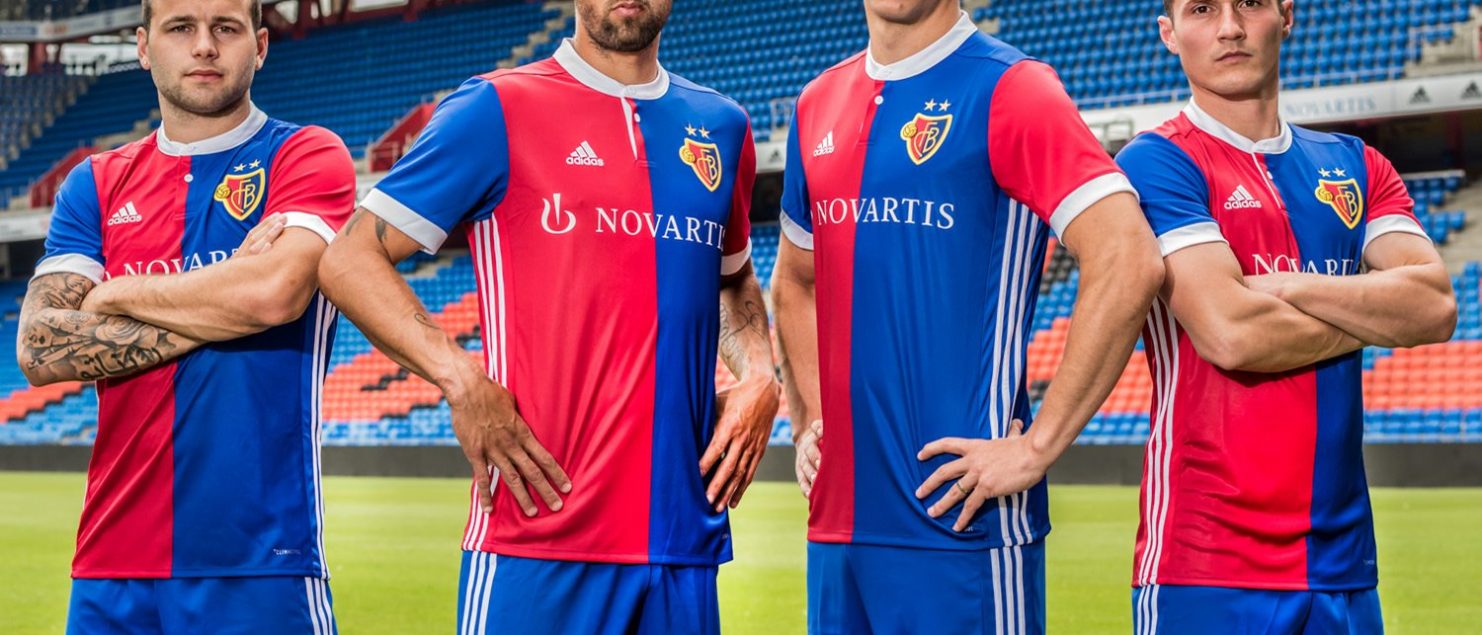Group Stage Fan Preview: Basel
It’s a season of transition for FC Basel, as no stone was seeminlgy left unturned this summer. First, the beloved chairman Bernhard Heusler and his crew stepped down to free their posts to a younger generation. This generation being former players Marco Streller, Massimo Ceccaroni and Alex Frei. Then, the manager Urs Fischer was let go to bring up FCB U21 manager Raphael Wicky. And, as if that’s not enough, the implemented a change in philosophy to play more younger players, mostly from the own academy. This change of strategy is set to take place over the next 2 years.
Early results have shown that it will take a while for all the pieces to fall into place. A loss to competitors Young Boys, followed by three wins and two draws at the start of the season isn’t what Basel-fans are used to. Players and the staff were also shocked to learn that club-legend Matias Delgado unexpectedly retired from football after the second game of the season. Not only the unusual timing took everyone by surprise, but the loss of such an important figure took a toll on the team’s morale. Delgado was captain and an integral part in Basel.
Young manager Raphael Wicky has brought a new, more flexible tactical approach to the team and the players are still adapting. Wicky prefers to play in a 3-1-4-2 formation, which translates to a 5-3-2 in defence. It’s a formation that demands fluidity. Having five in midfield is perfect for a possession-hungy team like Basel as they’re able to overload certain areas of the pitch. As of right now, the system works decent enough for the domestic competition. But at times, the lack of quick transition was evident. This has to improve for the Champions League if Basel wants to take points off bigger teams.
In what seems to be a relic from the former manager, Basel also plays in a 4-2-3-1 formation from time to time. But they’re still chasing success with it. Their only loss and a draw came when they started with a 4-2-3-1. It’s a more static formation and might not be used in the Champions League. Most of the time in last season’s UCL campaign, FCB played with a 4-2-3-1, but to little success.
For all the change surrounding the club, the squad itself hasn’t changed much. A major acquisition was Dutch striker Ricky van Wolfswinkel. He was brought in by new director of football Marco Streller, because Basel lost a lot of goals with Seydou Doumbia and Marc Janko. And so far, van Wolfswinkel’s spell seems to be fruitful as he scored six goals in an equal amount of games. The only other player coming in from the outside was young Swiss prodigy Dimitri Oberlin, on loan from RB Salzburg. To come true to their new strategy, Basel promoted youngsters Derek Kutesa, Dominik Schmid, Neftali Manzambi and Afimico Pululu to the first team squad. And in what feels like a new transfer but really isnt’, 23-year old Kevin Bua has finally left his injury-ridden last season behind him and is on his way to become a regular contributor.
The team is built around a good crop of internationals and experienced players. Tomas Vaclik in goal is as consistent as it gets on his position. Him and his fellow Czech compatriot Marek Suchy are the backbone of the defensive departmen. Suchy also was determined new skipper by Raphael Wicky, after Delgado retired. He partners with highly touted Manuel Akanji and Football Manager legend Eder Balanta. Luca Zuffi is the player with the most minutes in midfield. With the change in formation, Zuffi dropped deeper and is now more of a deep lying playmaker. The right-hand wing back is Michael Lang, one of the very best players in Switzerland and a threat after set-pieces due to his height and strenght. On the left side, Renato Steffen is occupying this role. A quick and agile dribbler with strenghts mainly in attack.
Partnering Zuffi in central midfield are mainly Taulant Xhaka, a hard worker and hothead, and Mohamed Elyounoussi, who’s being chased by Premier League clubs such as Stoke. Elyounoussi and Zuffi are the team’s main source for creativity. On their day, it’s a very good combination. But if both are off their game, Basel’s attack is predictable. Up front, van Wolfswinkel is set, while Kevin Bua and Dimitri Oberlin change places from game to game. Depth was Basel’s strength in the last few years, but this year, many young players complement the core. There is depth in midfield, but little in defence or up front. This could prove to be a hindrance by the time the Champions League rolls around and the club plays 3 games per week.
As every season, the goal of Basel is to remain in Europe over winter. In other words, finishing the group in the top 3. They are meeting some familiar foes, as Benfica and United were drawn into a group with FCB in the 2011/12 Champions League season. Back then, Basel managed to qualify for the round of the last 16, eliminating Manchester United to the Europa League. Due to the internal changes, the club is not expected to do this well. Qualifying for the Europa League would be seen as a success for most fans. Especially after the disappointing 2016/17 campaign.
By: @aulit_z
Photo: FC Basel
